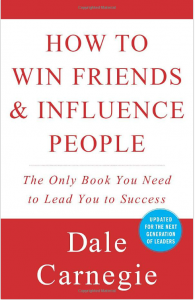If you’re like me, and grew up in a much simpler time, you’re probably familiar with the piggybank. As kids, we all had a piggybank sitting on top our dresser or desk, and we would faithfully put money into the piggybank every time we came across a windfall. Birthday card from Grandma; money in the piggybank. Allowance for cleaning up your room; money in the bank. Some spare change we found on the ground in the parking lot outside the grocery store, piggy time. Our parents tried to instill in us the importance of saving more money than we spend. Hopefully, we’re still following that advice today.

Eventually there came that fateful day where we wanted to put all that hard-earned money to good use. Maybe we’d been saving up to buy a bike. Maybe a chemistry set. Or maybe it was Barbie accessories. Whatever the object of our youthful desires, we eventually broke into the piggybank to satisfy our urge. Sometimes the piggy bank had a removable plug at the bottom that we could take out to access our riches. But sometimes there was no stopper that we could pull, and we were left with no alternative but to smash the piggybank. Yes, it sucked to break our piggybank, but in the moment, we were so excited about the prospect of getting what we wanted that we didn’t even blink an eye. It was piggybank destruction time.
Smash!
We’re rich!
Bike. Chemistry set. Barbie Dream House. Here we come!
We were so filled with expectation about getting what we wanted that we didn’t even think twice about destroying our beloved piggybank. We didn’t bat an eye; it was ours, we wanted it and nothing was going to stand in our way.
Give it to me. It’s mine. All mine. Don’t care how. I want it now.
Veruca Salt (Willy Wonka and the Chocolate Factory)
All too often, our childhood Veruca comes back to haunt us when we’re adults. We become so blinded by our wants, desires, and ambitions that we’re like the infamous bull in a china shop, running around with blinders on, impervious to the collateral damage happening all around us. We don’t see any of the problems we’re causing, because we’re solely focused on the prize ahead. Tunnel vision, they call it.
All too often in our lives (personal as well as business), we get tunnel vision. We’re so focused on our goals, what’s right in front of us, the object of our current desires, that we lose focus on the big picture.
We can’t see the forest for the trees.

Every time we do business with someone, every time we have a personal interaction with a client, every time we’re doing what we do for a living, we’re putting something out there. Everything that we put out there is either going to help or hurt our future business. Each time we interact with one of our clients, we’re promoting our values.
Every client comes away from that momentary personal connection with an understanding of who we are and what we value. It’s up to us to maximize these brief moments of interpersonal communication. It’s up to us to decide whether or not we’re going to treat our clients like our own personal piggybank.
Are we going to be content smashing that relationship simply to satisfy our short-term desires? Is it in the best interest of our long-term business goals to extract maximum value from this one interaction, regardless of the cost?
Now money vs. future money. Which one is more valuable to us and our business goals?
I can recall an interaction that I had with another home inspector at one of our state home inspection board meetings that clearly illustrates this concept. This particular inspector had been to three straight quarterly board meetings, defending himself against a previous home inspection client that had filed a complaint. The client alleged that the inspector had failed to identify a flashing problem on the second floor, which led to water intrusion into her bedroom wall. With investigations and appeals, the board hearing had drug out over a nine-month period, taking up a good portion of three different board meetings. The client had been trying to get the inspector to pay for the repairs to her wall, which totaled about $750.
The inspector was adamant about the fact that he hadn’t missed any deficiencies, as the flashing was clearly not fully accessible during his inspection, considering that it was located on the second story of the home. After the initial hearing (at the first board meeting), the board sent out an investigator to check out the lady’s claims. At the second meeting, it was decided that the flashing was not fully accessible, so the inspector wasn’t liable for any of the damages. The client appealed the board’s decision, resulting in a third trip to the board office for a final appeal hearing.
After the board denied the lady’s appeal, the inspector was quite pleased with the outcome, and proceeded to tell me how he felt vindicated by the board’s decision. I congratulated him on his victory, and we started to talk a bit about the situation.
He told me that she had originally approached him in an attempt to get him to repair her wall, but as he was sure that he’d done nothing wrong, he told her that she was on her own. When her complaint was filed with the board, he had another chance to pay her for the repairs, but declined. At every step along the way, he rebuffed all attempts to settle the issue.
So, there he sat, happy that his home inspection prowess had been vindicated, saving him from paying his client’s $750 repair bill.
As we talked a bit more, I asked him a few questions. Turns out that this situation had been dragging on for almost a year. He was glad that it was now over, as he’d been under quite a bit of stress as the situation played out. The real estate agent that had recommended him to the client had been stuck in the middle of this situation, trying hard to remain a neutral party during the dispute but finding herself drawn into the fray by her client. The inspector told me that the agent had been pressuring him to reach an agreement with the client over her wall, but he told me that he stood his ground, as he knew that he was in the right and shouldn’t have to pay for an issue that wasn’t his responsibility.
As I questioned him a bit more, it turned out that he ran a fairly success inspection business and averaged about 2 inspections a day. After a bit of prodding, he confided in me that he made about $350 per inspection.
After asking once more how much the client had wanted him to pay ($750), I did some quick math in my head and explained to him that his three lost days of work (spent driving to and attending the board hearings) had cost him $2100. When I asked if it was worth it to lose $2100 and spend almost a year of his life stressing out about this issue, just to save $750 and say that he was right, the blank stare on his face gave me the only answer that I would ever get out of him.

While concentrating hard on his “now money” ($750), this inspector failed to take into consideration his “future money” ($2100) or the effect that all that stress would have on his health. He also failed to consider the stress that the real estate agent would also be feeling, and the potential damage that the incident would have on their business relationship.
Good judgment comes from experience, and experience comes from bad judgment.
Rita Mae Brown, in the book Alma Mater
In our lives, we’re often blinded by things that seem incredibly important in the moment. Whether it’s money, notoriety or the self-satisfaction that we get from being right, these things have a way of turning off our common sense. Our greed often leads us to make self-serving decisions that seem to be right but turn out to be costly in the long run. The ability to look at things from a 10,000-foot view and account for some of the unintended consequences of our actions is a skill that we should all strive to achieve.
Breaking open that piggybank may seem like a great idea at the time, as we’re often anxious to make that all-important withdrawal, but what do we do when it’s time to start making deposits again?
Once we break it, it’s hard to put those pieces back together again.
Would you like to get an email every Friday where we share the newest things we’ve discovered about home inspections? CLICK HERE to sign up.
Want to be an Influencer in Your Field? Share This Post!
Thanks, Joe


